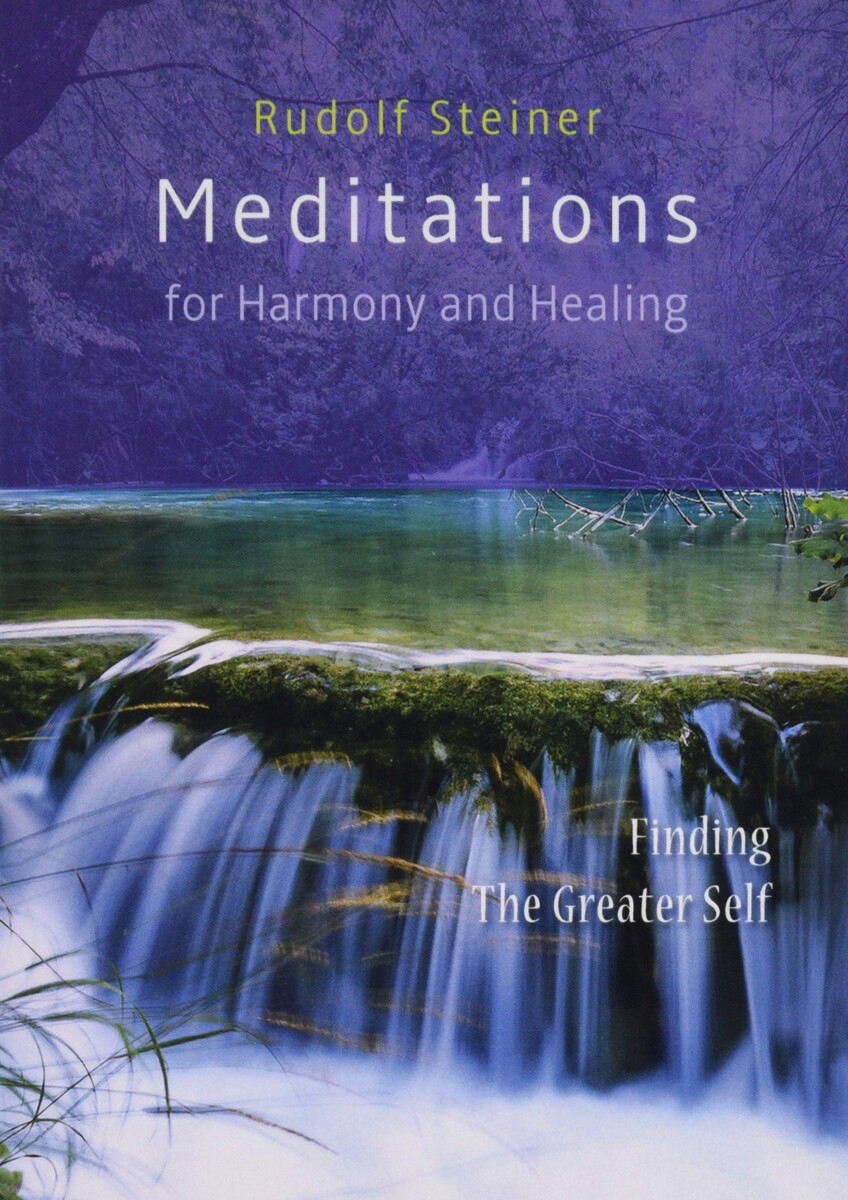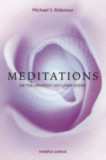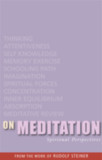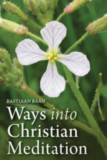- Publisher
Rudolf Steiner Press - Published
5th June 2018 - ISBN 9781855845497
- Pages 74 pp.
- Size 4.75" x 7"
As a spiritual teacher, Rudolf Steiner wrote many inspired and beautifully crafted verses. Often they were given in relation to specific situations or in response to individual requests; sometimes they were offered to assist generally in the process of meditation. Regardless of their source, they are uniformly powerful in their ability to connect the meditating individual with spiritual archetypes. Thus, the meditations provide valuable tools for developing experience and knowledge of subtle dimensions of reality.
Matthew Barton translated and selected Steiner’s verses, arranging them with sensitivity by theme. In this collection to promote harmony and healing, Rudolf Steiner helps us discover a renewed sense of our true place in the world. The verses show how we can come to know ourselves by looking outward toward the substances and processes at work in the cosmos and, by contrast, to know the world by looking into the microcosmic depths of our human self.
By integrating spirit and matter within, we can heal the divisions in our relationships with others. For people today, who have become increasingly divorced from a living relationship with nature, these verses help to unfold a world of interconnections.
Rudolf Steiner
Rudolf Steiner (b. Rudolf Joseph Lorenz Steiner, 1861–1925) was born in the small village of Kraljevec, Austro-Hungarian Empire (now in Croatia), where he grew up. As a young man, he lived in Weimar and Berlin, where he became a well-published scientific, literary, and philosophical scholar, known especially for his work with Goethe’s scientific writings. Steiner termed his spiritual philosophy anthroposophy, meaning “wisdom of the human being.” As an exceptionally developed seer, he based his work on direct knowledge and perception of spiritual dimensions. He initiated a modern, universal “spiritual science” that is accessible to anyone willing to exercise clear and unbiased thinking. From his spiritual investigations, Steiner provided suggestions for the renewal of numerous activities, including education (general and for special needs), agriculture, medicine, economics, architecture, science, philosophy, Christianity, and the arts. There are currently thousands of schools, clinics, farms, and initiatives in other fields that involve practical work based on the principles Steiner developed. His many published works feature his research into the spiritual nature of human beings, the evolution of the world and humanity, and methods for personal development. He wrote some thirty books and delivered more than six thousand lectures throughout much of Europe. In 1924, Steiner founded the General Anthroposophical Society, which today has branches around the world.








